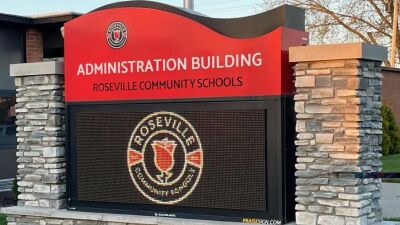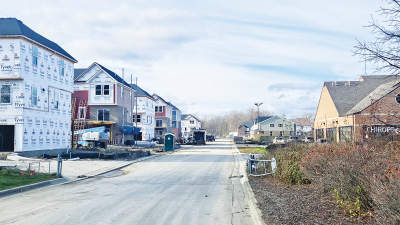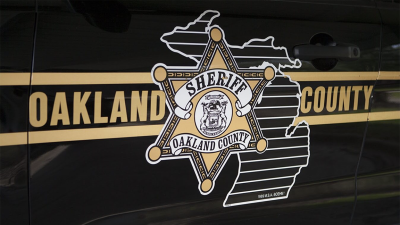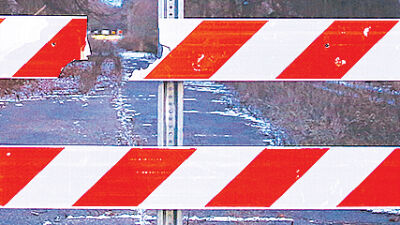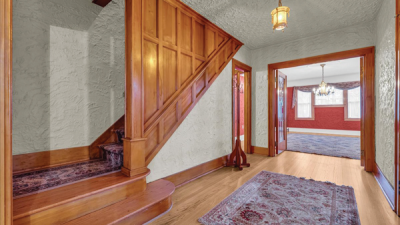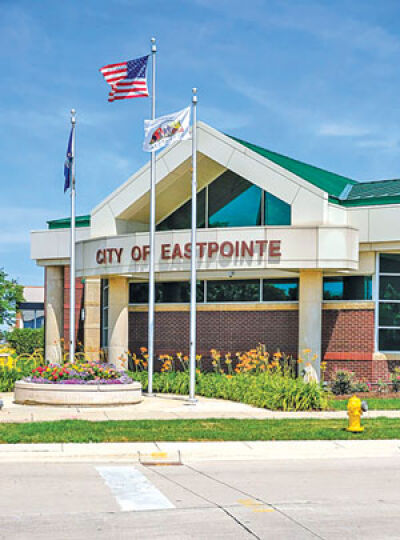
The city of Eastpointe will receive $10 million from the state to replace lead water service lines at homes in need of replacements.
File photo by Patricia O’Blenes
EASTPOINTE — As Eastpointe continues to replace lead water service lines, financial help is coming from the state.
At the July 18 Eastpointe City Council meeting, state Sen. Veronica Klinefelt, D-Eastpointe, and state Rep. Kimberly Edwards, D-Eastpointe, announced that the city will receive $10 million from the state budget to replace lead water service lines.
“I know Rep. Edwards was working on her side of the aisle to get money for Eastpointe with regards to lead lines,” Klinefelt said. “I started talking to City Manager (Mariah) Walton back in February. We have been able to secure $10 million in the budget solely to replace lead lines.”
When working on the funding, Klinefelt also had conversations with Darin Paolucci, director of Eastpointe’s Department of Public Works and Services, about costs associated with such a project. Although Gov. Gretchen Whitmer has not yet signed the budget, Klinefelt said she will “stake her reputation on it that she will not do a line item veto on the replacement of the lead lines in Eastpointe.”
“There is a pot of money for lead lines statewide,” Klinefelt said. “This is something I wanted to do. I had a good case to make because Eastpointe had that public advisory last year.”
Klinefelt is referring to the fall of 2022 when 30 homes in the city with known lead service lines were tested for lead. Five homes exceeded the state’s action level for lead, and the goal is for the city to replace all lead service lines.
On July 18, the same day of the council meeting, city officials posted an advisory on the Eastpointe website regarding another test that was recently conducted. According to Walton, the city tested 60 homes from Jan. 1 through June 30 of this year. Results determined that out of the 60 homes sampled, seven had results over 15 parts per billion. As per the advisory, homes with lead service lines have an increased risk of having high lead levels in drinking water.
“When the public advisory was issued, I thought now is the time to get the word to residents that help is on the way,” Klinefelt said. “This was a nice opportunity to knock out most of the lead lines in the older homes. I’m glad to see the state invest in our city.”
According to the advisory, the Department of Environment, Great Lakes, and Energy evaluates compliance with the action level based on the 90th percentile of lead and copper results collected in each round of sampling. The lead 90th percentile for the city’s water supply is 22 ppb, which exceeds the action level of 15 ppb, the advisory stated.
“Lead can enter drinking water when in contact with pipes, solder, home/building interior plumbing, fittings and fixtures that contain lead. The more time water has been sitting in your home’s pipes, the more lead it may contain,” the advisory reported. “Therefore, if your water has not been used for several hours, run the water before using it for drinking or cooking. This flushes lead-containing water from the pipes.”
A water service line runs from the water main in the street to the tap — usually under the front yard — and then into the home. The line is made of specific material such as lead or copper. Homes with lead water service lines are being tested based on the ability of the material to get into the drinking water.
EGLE evaluates the city’s compliance with the “action level” based on the sample testing. The “action level” is a measure of corrosion control effectiveness; it is not a health-based standard. Based on the results, the city must provide the public with information on the potential impact of lead in drinking water.
“The goal for lead in drinking water is zero parts per billion. We recommend that you do utilize a filter if you do have a lead water service line,” Walton said at last week’s council meeting. “Filters are recommended in general for drinking water.”
The city won’t receive the funding until after the state budget is adopted in October.
“The state fiscal year begins in October,” Walton said in a follow-up email. “We would expect to hear more information on the process closer to that date.”
City officials will conduct another round of tests with 60 homes from July 1 through December of this year.
City officials have an “Eastpointe Lead Safe” page on the city’s website at eastpointemi.gov. Information about the lead water service lines can be found as well as where to obtain a water filter. Call (586) 204-3032 to schedule a time to pick up a water filter at City Hall, the Eastpointe Memorial Library or at the Public Works Offices. There is also a form at the city’s website that residents can fill out to determine if their home has a lead service line.
The city stated in its press release that since 2020, it has replaced 687 lead service lines and plans to replace another 100 lines in the 2023-24 fiscal year, which began July 1. The City Council put $1 million in the budget for lead service line replacement, Walton said in an email.
 Publication select ▼
Publication select ▼



